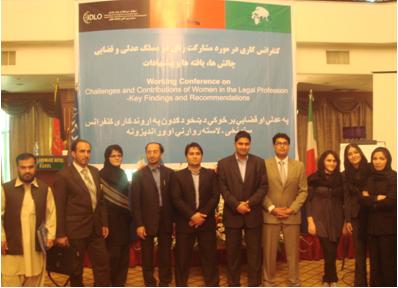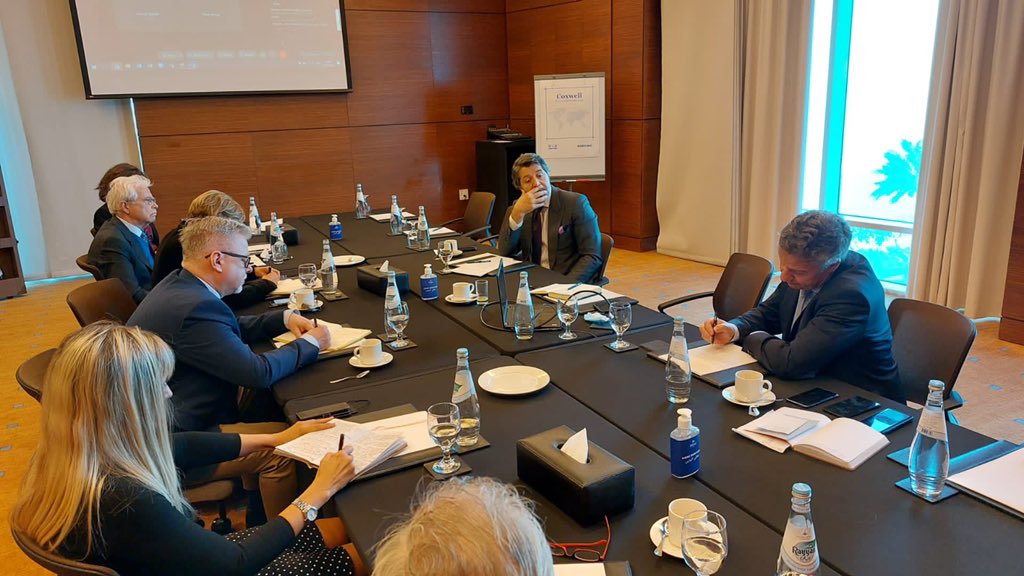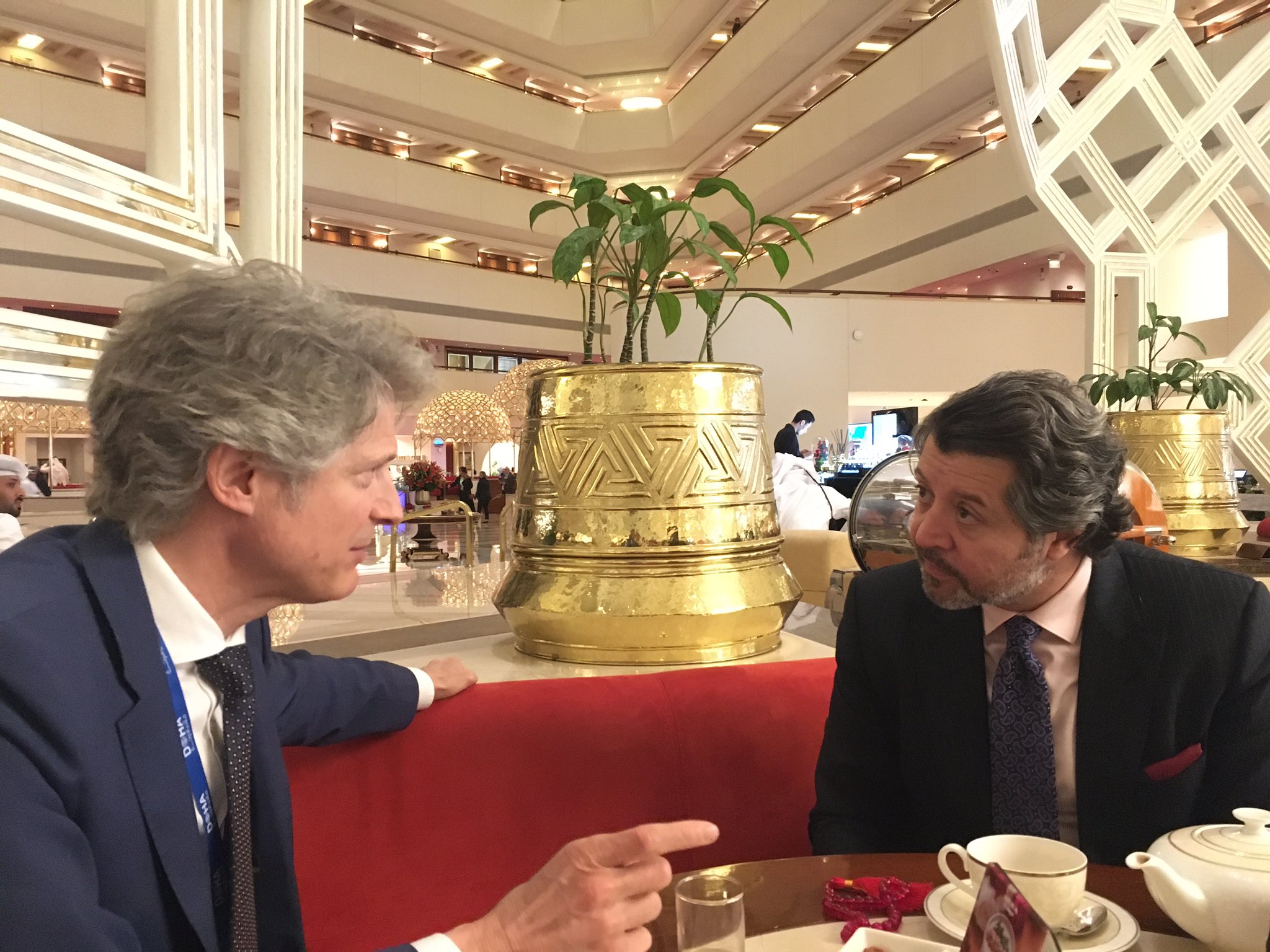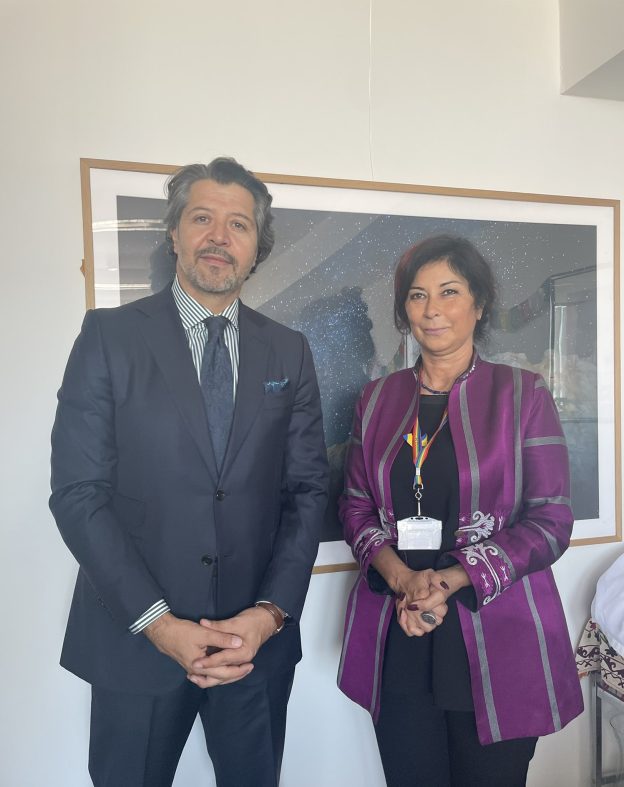Jul 12, 2010
On June 5th, 2010, the International Development Law Organization (IDLO) and the Centre for Conflict and Peace Studies organized a working conference on challenges and contributions of women in the legal profession. Held in Safi Landmark Hotel, the conference was based on a survey conducted by CAPS, with 518 legal professionals and students from national justice, educational, government institutions and non-governmental legal organizations from Kabul and Herat that pinpointed key findings and recommendations.The conference began with an introduction to the conference given by Ms. Lailuma Nasiri who leads the gender program at IDLO. Mrs. Shereen Ibadi, a prominent journalist from Iran and a Nobel Peace Prize leaureat for her contributions in field of journalism, sent a message to the audience via webcam, Mrs. Ibadi spoke of ways to free Iranian and Afghani women from the influence of the male dominated society in which they live in. According to Mrs. Ibadi, “our patriarchic society is not necessarily the superiority of men over women; however, it is a society that does not accept equality among human beings. Henceforth, women should raise their voices against such injustice in society, and fight for their rights. In order to attain this, women must be able to accomplish two things: confidence and financial independence. Women must not underestimate themselves; instead they should trust that they are as competent as men. In addition, a woman must try to be financially independent and not rely on her husband for monetary assistance. Thus, women should seek higher education to enable themselves to successful pursue a career. Our society and government must work together to help the women realize their rights and capabilities and provide them opportunities to step in the professional world. A woman’s most important role, certainly, is being mother. However, her duty of motherhood should never be a reason for her inability to have a job. A woman can be both a great mother and a great director.
Mrs. Mahbooba Huqoqmal, a member of the Loya Jirga and a professor at Kabul University, and Ms. Maria Bashir, Chief Prosecutor in Herat province, contributed to the conference by emphasizing women’s rights and institution of justice. “One year of justice is more than 60 years of worship,” a Hadith quoted by Mrs. Huqoqmal.
Speaking on women’s rights from an Islamic perspective, Mr. Muhammad Akhtar Saighani, a professor of Sharia in Kabul University, quoted a few verses from the Holy Quran regarding gender equality in Islamic societies. Professor Saighani stated; “There are four kinds of equalities that exist among all human beings regardless of gender: equality in creation, equality in rights and responsibilities, equality in Islamic principles and equality in legal capacity”. All men and women are created equally, as mentioned in the Holy Quran, “A wife is made from the same matter as the husband and as all the other men and women” articulated Professor Saighani. Furthermore, both men and women have their rights and responsibilities; neither should shun their responsibilities, and neither should be deprived of their rights. The Islamic principles apply to women as equally as they do to men. There are rewards given to both men and women who perform good deeds and punishment if otherwise. Regarding the equality in legal capacity, Mr. Saighani gave example of Nikkah, the matrimonial contract between a bride and a groom within Islamic marriage. Both the man and woman must give their agreement to the contract. Without either’s approval, the Nikkah is not accepted.
Ms. Mariam Safi, a research fellow at CAPS, spoke about the methodology, limitations and demographics of the survey. The survey was composed of 203 in-depth interviews, 18 focus groups and 189 questionnaires for a mix of qualitative and quantitative data. The demographics included law students and legal professionals. The preliminary findings mentioned by Ms. Safi were categorized under the following headings.
Motivated by desire for social justice, Gender blind approach, but obstacles persist, Negative perceptions of women legal professionals persists, affecting their ability to perform and excel, Perceived Professional Competency, Negative perceptions of women legal professionals persists, affecting their ability to perform and excel, Perceived Professional Competency, Access to Legal Education, and Unequal Education.
Mr. Abdul Halim Achakzai, a senior research analyst at CAPS, presented charts that identified some of the preliminary findings mentioned by Ms. Safi. Mr. Achakzai also addressed some recommendations and plans of actions, such as the national justice sector institutions that aim to remedy the gender gap in qualified personnel with special programs to overcome obstacles women experience in attending legal education and training. Their relevant key objectives included: increase in policies to facilitate the transition of female students from university to professional environments within the justice sector and coordinated training on the cross cutting issue of gender.
Later into the conference the attendants were divided into three different groups where each had a chance to make recommendations for increasing women’s participation in the justice sector. Group A- objective was to highlight the plans for government offices in the legal and judicial sectors. Group B- proposed plans for government educational institutions (Sharia and Law faculty).
Group C- suggested plans for professional organizations, civil society, non-government organizations, international organizations and donor communities. Some of the frequent recommendations by the groups included improvement in security and better transportation facilities for women that the government should provide.
They also emphasized on the role of the media in increasing awareness about women’s rights in society. Furthermore, they proposed a clearer explanation and interpretation of the Civil Service laws that are originally written in Arabic and are literally translated into Dari. Some women find them hard to comprehend and claim it as a reason for the lack of the realization of women’s right in the society. Mrs. Najla Ayubi, the director of Asia Foundation, concluded the conference and gave a brief summary of the conference.
Other attendants from CAPS included Mr. Saifullah Ahmadzai, Mr. Ajmal Karimi, Mr. Mukhtar Niazi, Ms. Wadia Samadi, Dr. Zeerak Yusufi, Mr. Ajmal Niazi, Mr. Abdul Hakim Qayumi, Dr. Mansoor Majab and Mr. Sebghatullah Tamim.






Leave A Comment